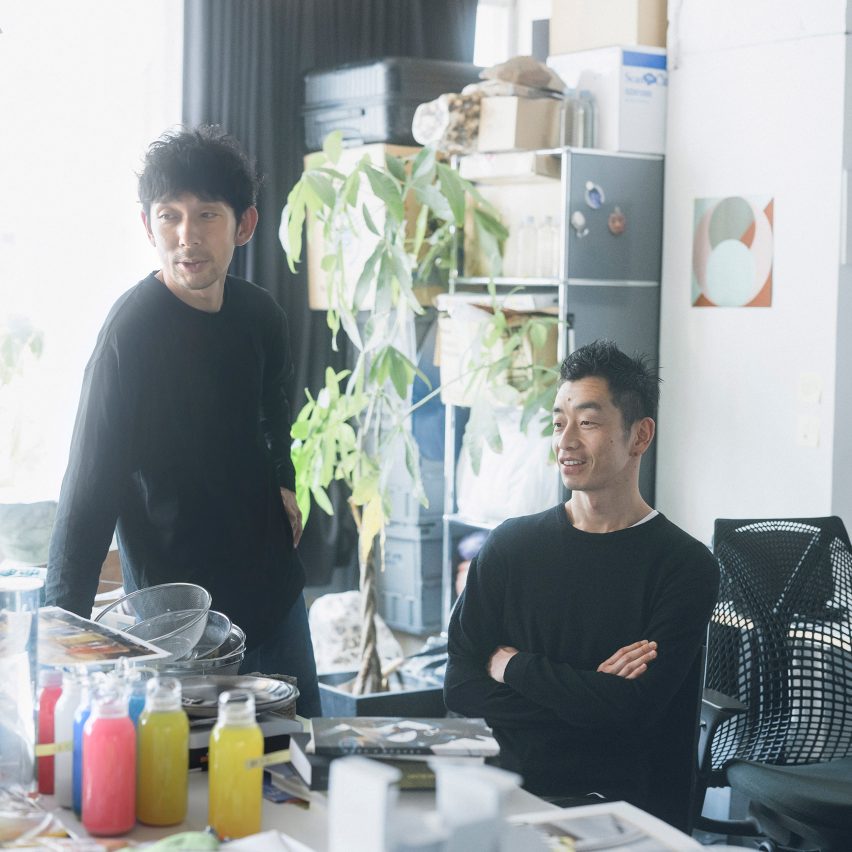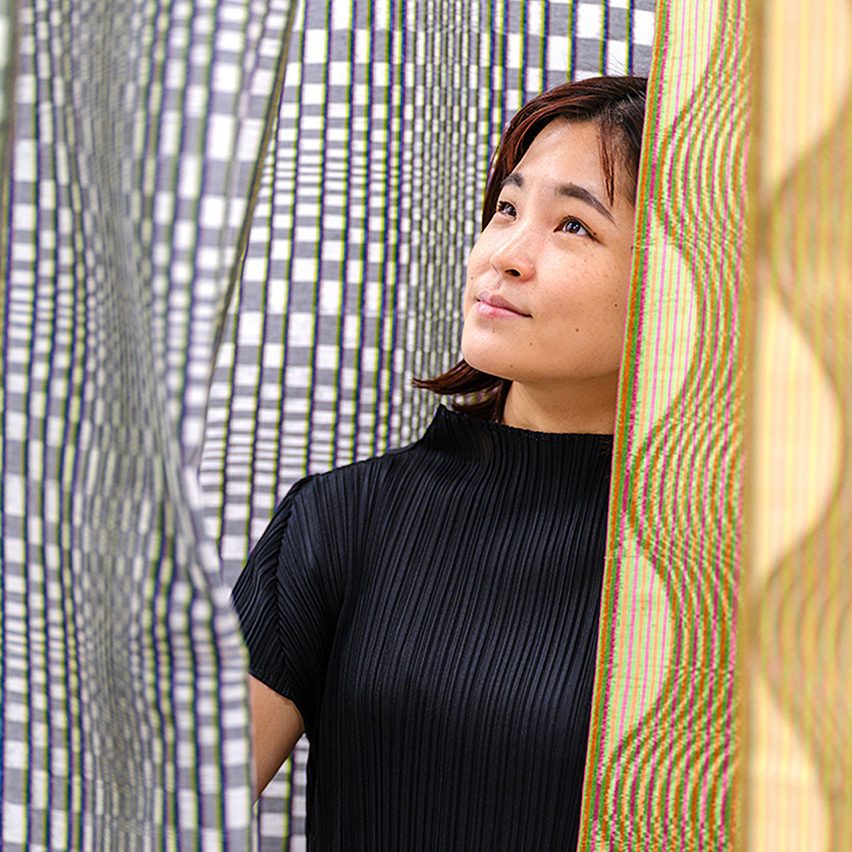
Designers "want to show their works in a public, physical scene" says Designtide Tokyo co-founder
Designtide Tokyo is back after a 12-year hiatus. In this interview, exhibition co-founder Yuta Takeda explains the reasons for its revival.
The event, which originally ran from 2005 to 2012, has been revived by Takeda and the original founder of Designtide, Tsuyoshi Matsuzawa, who believe there is a renewed desire to present work in a physical show.
"During the past 12 years, we could also see that there was a demand from designers that they wanted to show their works in a public, physical scene," Takeda told Dezeen.
"More like a creative alternative"
Envisioned as "an event that seeks to change the tide of design", Designtide Tokyo will run from 27 November to 1 December at Nihombashi Mitsui Hall and will bring together more than 30 independent designers, mostly from Japan.
It will aim to platform new ideas and forthcoming design trends, rather than commercial design.
"Designtide first started as a creative alternative to Tokyo Designers Week, which was a little bit more mass market as a trade show," Takeda explained. "Designtide was more like a creative alternative."
According to Takeda, the original show ended at a time when people had started to use social networks and designers were focused on digital platforms as ways to promote and present themselves.
"This was kind of a new situation, probably not only in Japan," said Takeda. "At the same time, the design scene and physical events had started losing power in Japan."

Takeda runs an educational business called Gaku, where teachers from the fields of contemporary art, architecture and product design host special weekend classes for teenagers. He became aware that young, emerging designers were lacking opportunities to present physically.
"Through that business, I was approached by one of the teaching product designers and he mentioned that there is no physical opportunity anymore for young, emerging designers to present themselves in Japan."
Takeda and Matsuzawa believe that slow economic growth in Japan, combined with a risk-adverse attitude from companies, contributes to the lack of opportunities for emerging designers.
"One reason is because the financial situation in Japan is not that good, and young emerging designers really don't have the budget to create new things by themselves," said Takeda.
"At the same time, the corporate side doesn't have the knowledge of commissioning young designers or the courage to assign young talents that they don't know."
Takeda and Matsuzawa hope that Designtide Tokyo will stir up that situation to get more new talents into the design industry in Japan.
"One thing that stuck in my mind was to create an opportunity for product designers in Japan to present themselves physically," said Takeda.
Although the show is returning, Takeda acknowledges that the design scene in Japan has moved on since Designtide closed in 2012.
"Now, I feel that there might be some kind of new role that design can play that is a lot more emotional and that can move the feelings of people," he said.
"Not just clean-lined or properly designed, but something a lot more raw and a lot more emotional."
"We wanted something that is raw and something that is challenging"
In the process of bringing the show back, the Designtide Tokyo team put out a call to designers to participate, not just from Japan but neighbouring countries too.
The applicants were assessed by an international selection committee, including London-based Japanese designer Yuri Suzuki, US design magazine Sight Unseen's co-founders Monica Khemsurov and Jill Singer, and the author of this piece – Dezeen's editorial director Max Fraser – alongside Designtide Tokyo directors Taku Sato and Hirofumi Akimoto.
During the selection process, the committee raised points about the choice of materials, sustainability and gender equality.
"These are some issues that everybody is aware about from a global standpoint, but to be honest, from a domestic viewpoint, those are still not the priorities in Japan," said Takeda.
"So that was something really refreshing and something extremely important that was valued in the selection results."

Following an initially male-heavy group of applicants, the organisers worked harder to reach female designers. Takeda recognises that there is still some way to go to attract more female designers to participate in the show.
"We have to encourage female designers that they need to participate in order for us to better represent the design scene here," he said of Japan.
Exhibiting in the 2024 edition are 32 designers, 12 of whom are female, including Yuri Himuro, Daiki Tado, Hana Mitsui, Jin Kuramoto, Fumie Shibata, We+ and Daisuke Yamamoto.
Sato and Akimoto had meetings with each of them, asking them to respond to the theme of "Beyond Vulnerability".
"We wanted something that is raw and something that is challenging for the individual designer," said Takeda. "We didn't want the designers to stick to something safe but rather something that is a lot more personal."
"As a platform, Designtide needs to be the safe zone for those individuals to present something that they're not totally sure of, in terms of how society will receive it," he continued.
Additionally, there is a special section called Imagining Satellites, curated by designer Takuto Ohta to include eight young designers born after 1990. Visitors will also be able to purchase works from past and current exhibitors in the Design Market area.
The five-day show will also include talk sessions around subjects like generative AI, and the blurring boundaries between art and design, and design entrepreneurship.
The organisers hope that the renewed Designtide Tokyo will appeal to a wider audience.
"These will appeal not just to designers but visitors from other creative fields – we're trying to broaden the audience," said Takeda.
"Our other main motive is to broaden the way that industrial, product and interior designers think in Japan. The intention is to give hints as to what the design industry could be like in the coming years."
The photography is courtesy of Designtide Tokyo.
Designtide Tokyo takes place at Nihonbashi Mitsui Hall, Tokyo from 27 November to 1 December. See Dezeen Events Guide for more architecture and design events around the world.